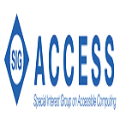Participatory Design (PD) seeks political change to support people's democratic control over processes, solutions, and, in general, matters of concern to them. A particular challenge remains in supporting vulnerable groups to gain power and control when they are dependent on organizations and external structures. We reflect on our five-year engagement with survivors of sex trafficking in Nepal and an anti-trafficking organization that supports the survivors. Arguing that the prevalence of deficit perspective in the setting promotes dependency and robs the survivors' agency, we sought to bring change by exploring possibilities based on the survivors' existing assets. Three configurations illuminate how our design decisions and collective exploration operate to empower participation while attending to the substantial power implicitly and explicitly manifest in existing structures. We highlight the challenges we faced, uncovering actions that PD practitioners can take, including an emphasis on collaborative entanglements, attending to contingent factors, and encouraging provisional collectives.
翻译:参与性设计(PP)寻求政治变革,以支持人们民主控制各种进程、解决办法以及一般而言他们所关心的事项。在支持弱势群体在依赖组织和外部结构的情况下获得权力和控制方面,一个特别的挑战依然存在。我们思考了我们与尼泊尔性贩运幸存者和一个支持幸存者的反贩运组织进行五年接触的情况。我们辩称,在环境中普遍存在的赤字观点促进了依赖性,抢掠了幸存者的代理机构。我们试图通过探索基于幸存者现有资产的可能性来带来变化。三种配置说明了我们的设计决定和集体探索是如何在关注现有结构中隐含和明确体现的巨大权力的同时增强参与能力的。我们强调了我们面临的挑战,揭示了PD从业人员可以采取的行动,包括强调协作纠缠,关注各种因素,并鼓励临时集体。





